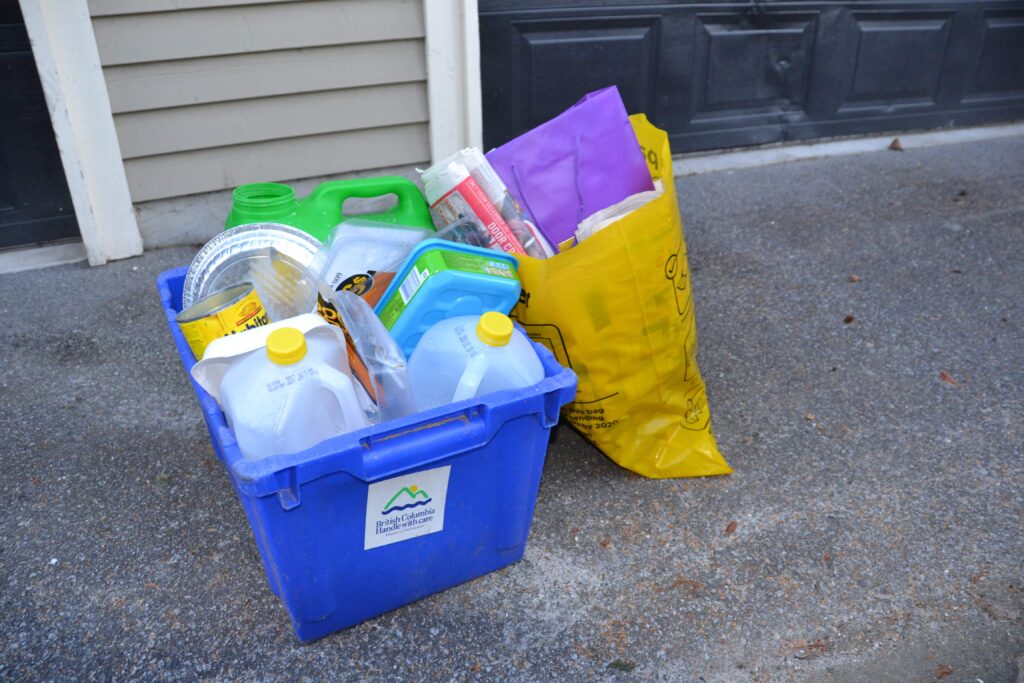Sorting your recycling is an important step to help ensure that materials collected in the Recycle BC residential packaging and paper recycling program are recycled properly. Even if paper and cardboard are collected in the same container as plastic and metal packaging and cartons and coffee cups, you still need to sort these materials from garbage, food scraps, and materials that are only accepted at a depot.
One reason that sorting material is important is that it helps ensure that the Recycle BC program only collects materials that can be recycled. It is wasteful—and dangerous—to transport materials that cannot be processed at our facilities. For example, pressurized cylinders or containers, and aerosol containers with contents remaining can cause fires and explosions in trucks and machinery.
Similarly, our sorting technology is not intended to capture batteries, appliances, and many of the other materials that are part of other collection programs, and if these materials are mixed with packaging and paper recyclables, it’s possible none of the materials can be recycled properly. Garbage and food waste can spoil the recyclability of materials, too. Some residents try to sneak plastic bags or foam packaging into their recycling bins, but these end up wrapped around machinery or breaking down and preventing other materials from being properly recycled, which is why we ask that residents take these to a Recycle BC depot so they can be recycled.
Last year, in part because residents help with sorting, Recycle BC sent over 95 percent of the collected materials to recycling end markets. But we still see items that do not belong, for example diapers (yuck!), medical equipment such as needles (hazardous!), propane cylinders (explosive!), and frying pans or other scrap metal (harmful to workers and machinery!).
Sorting is a simple thing that you can do to help us recycle more. For information on how to sort your recycling, check with your local recycling collector or check our material list.


